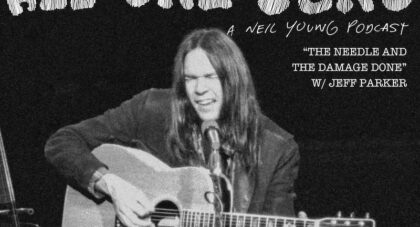Tobin Sprout was the other songwriter in early-1990s Guided by Voices.
But, in addition to his historic stint with one of lo-fi’s most exuberant bands, Sprout has done a lot of other stuff. He’s a well-regarded photo realist painter, an author and illustrator of several books and, every few years, a solo artist. In 2020, he released his eighth solo album, Empty Horses, a gorgeous but somewhat unexpected detour into Americana sounds and Civil War imagery. We talked about his new focus on country sounds, his art and his books and the band that started . . .
Only the good shit. Aquarium Drunkard is powered by its patrons. Keep the servers humming and help us continue doing it by pledging your support.
To continue reading, become a member or log in.


